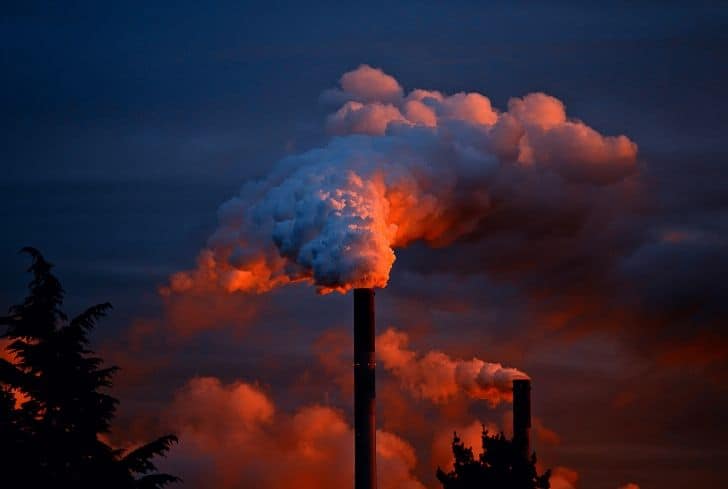
Take a look around. What surrounds you? You may point to your laptop, a lamp, a pen, maybe even a cup of tea.
But what you probably didn’t notice is the air, and frankly neither do I. Yet thousands of liters of air pass through my body each day without me even realizing it.
Air is funny that way. It’s so fundamental to our lives and yet so easy to forget.
But what happens when that air is polluted?
Even though air pollution is the fourth largest risk factor for early death, it is easy to ignore. Other risk factors, like alcohol, physical activity, or smoking, often feel more real to us than the tiny gaseous particles that surround us at all hours of the day. Air pollution is by no means an abstract concept but it can definitely feel that way.
That is why Beth Gardiner’s book Choked: Life and Breath in the Age of Air Pollution was so powerful for me. It helped me recognize air, and its pollution, as part of my daily life. She turned this seemingly abstract concept into something that feels concrete and urgent.
Choked tells the story of air pollution, what the major driving factors are and how it’s affecting people’s lives across the globe. In between personal anecdotes and community narratives, Gardiner breaks down the science behind air pollution. In that way, she tells in-depth human stories of the people most affected and uses science as a storytelling tool to explain these larger concepts.
My mental picture of air pollution had been of smog-filled cities like Los Angeles and Beijing, where the outline of skyscrapers are blurred by a grey mist. I had no clue how ubiquitous air pollution really was. Even areas that I had thought were “air-pollution free” weren’t. In fact, it is very likely that you and I are breathing polluted air right now. Ninety-five percent of the world’s citizens breathe polluted air, making air pollution the unfortunate norm rather than the rare exception.
My mental picture had another flaw. Although I had certainly never imagined air pollution to be good for me, I didn’t understand how harmful it truly was. Luckily, Gardiner was there to lay it all out for me. Breathing dirty air is associated with an increased risk of dementia and Alzheimer’s disease, mental illnesses like depression and schizophrenia, heart attacks and strokes, miscarriages, infertility, preterm births, and even pediatric cancers.
It gets even worse. Air pollution results in an exceptionally high mortality rate. One in nine deaths globally are hastened by air pollution. This is because, as Gardiner makes clear, air pollution doesn’t just impact our lungs. The particles that we unknowingly breathe into our bodies spread quickly, impacting every single organ.
Even if we have “good health” now, that doesn’t mean that we have escaped the consequences of air pollution. It just means we just haven’t experienced them yet.
Gardiner continued to challenge my assumptions, like that of “first-world” immunity. Many people, like me, associate environmental degradation with poorer countries. The assumption is that if we live in more developed countries like the U.S., air pollution is less of a concern. This is a misguided take. Even if the air outside doesn’t feel dirty, even if the city you live in has air pollution levels far below federal guidelines, no one is immune from the effects of air pollution. Gardiner explains that there is no “safe” level of air pollution. We don’t just want our air to be “cleaner,” we want it to be so clean that breathing it doesn’t harm us.
Choked uncovered the polluted truths of my day-to-day life. Gardiner helped me realize that air pollution is not an ephemeral, abstract phenomenon, but real and personal. Although air is easy to take for granted, doing so puts our health at risk. Every individual is affected by the air that they breathe, even if those negative effects manifest later in life.
Now when I look around me, I still notice the obvious — the laptop, pen, the cup of tea– but Choked pushed me to recognize what is far less visible but perhaps exponentially more consequential: the air that I breathe. This realization is one I hope others will make with me, because neglecting the need for clean air is not something we can collectively continue to forget.